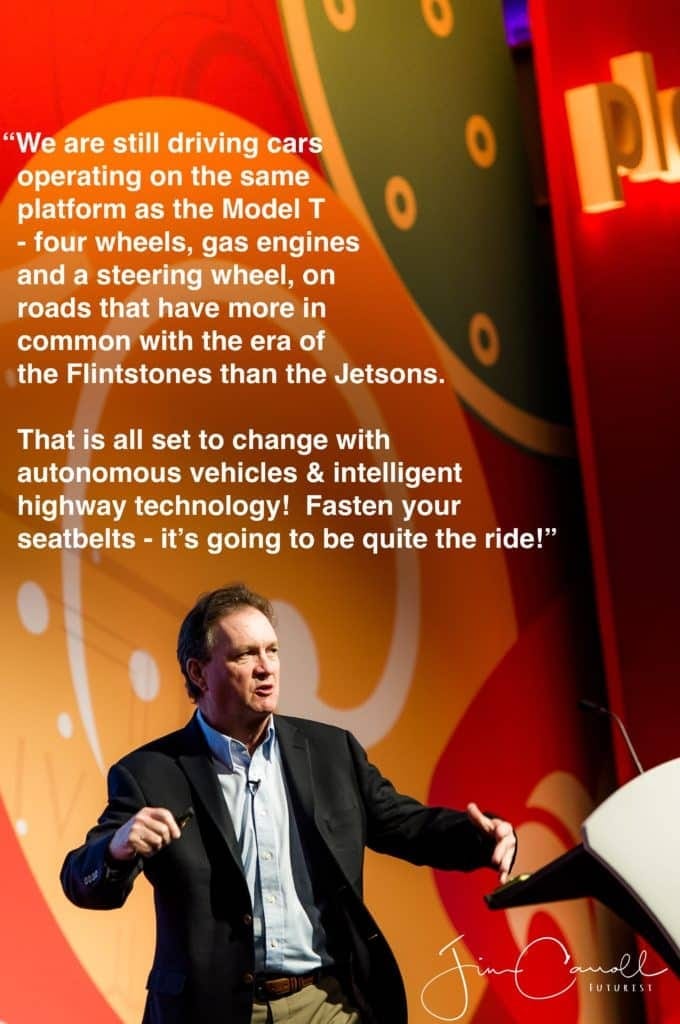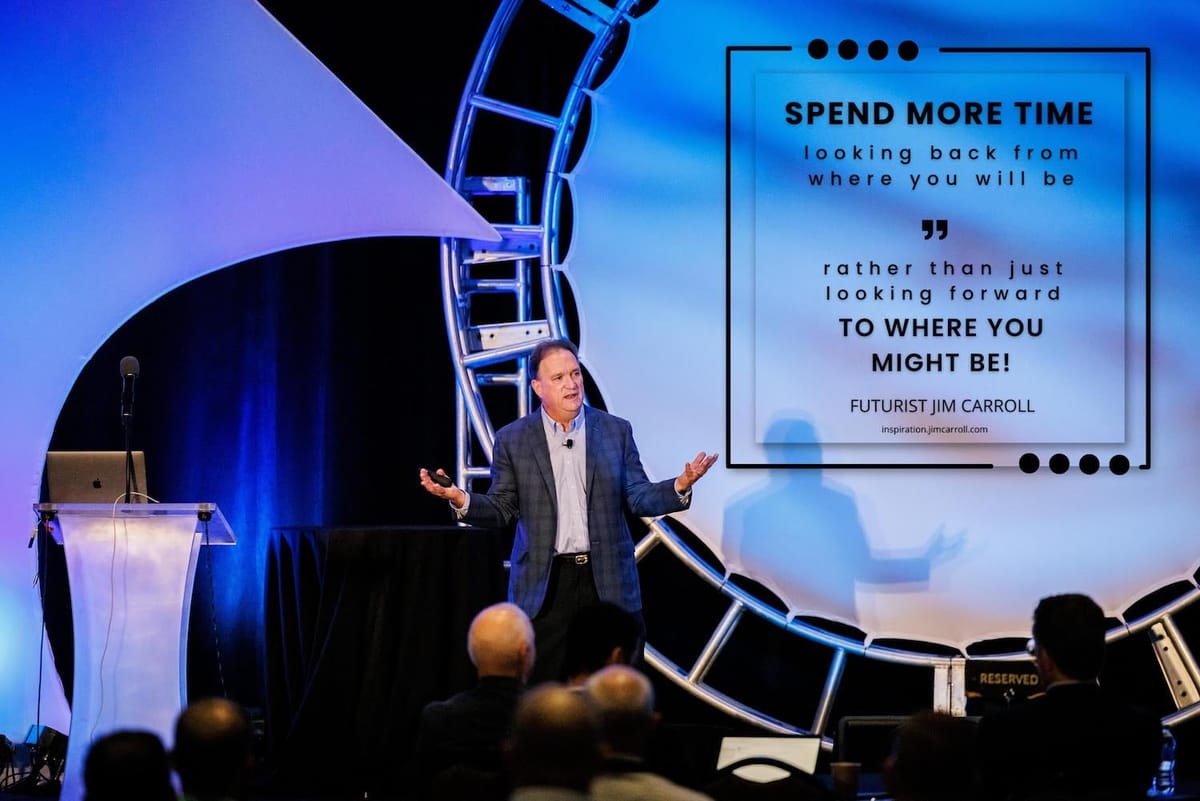Scenes from Tuesday morning’s Ammega Group conference at Chateau Elan in Braselton, GA. (Photo: Karl L. Moore/Mooreshots LLC)[/caption]
Note: I decided that as I begin to return to real stages, it's time to start making use once again of various real stage photos - so I'll go back and forth between formats! This particular photo is from a manufacturing event I opened in Atlanta back in May; I was challenging the audience to imagine what they would be thinking if it was 2030, and they were imagining what our world was like then compared to today.
I emphasized this point by indicating that part of the art of figuring out the future comes not from looking forward, but from looking back. What that idea in mind, here's how we might look back at today from some point tomorrow:
- agriculture: we used to go out and farm when the sun was up. Now, we have our robotic tractors undertaking farming 24 hours a day
- automotive and trucking: back in the early 2020s, we had cars that were based on carbon sources such as gasoline, and which were driven by humans. Now, they're electric, with batteries, and to a degree, drive themselves
- education: we used to teach kids based on the idea that we should provide them with skills they might need in the future. Now, we teach them to get the right knowledge at the right time for the right purpose - what we call 'just-in-time knowledge'
- energy and utilities: in the early part of the 21st century, we had one big energy grid, and relied on carbon sources such as oil, coal, and natural gas. Now, we have many little inter-connected community micro-grids based on wind and solar renewable energy sources, as we have rearchitected the grid for a world of millions of input sources
- healthcare: we used to fix patients after they were sick. Now, we have a better idea of what they will likely become sick with, based on genomic and other scientific advances, and act accordingly
- manufacturing: we used to design a version of a product and build it the same way a million times. Now, we design a product a million different ways and produce it differently each time using 3D printing and mass customization
- retail and food: we used to drive to stores to get the products that we need. Now, the products generally come to us, if they aren't already grown on our in-home vertical farm.
- insurance: we used to get insurance coverage based on our historical behavior or past actions. Now, insurance policies are written and adjusted in real-time based on real-time data and activities
- financial services: we used to take out mortgages and loans to acquire the things we wanted. Now, we simply get the things that we want for but a short time, and then move on to the next thing, as we generally just share the stuff that we need
- construction: we used to send people and materials to a site in order for a building to be assembled. Now, we generally assemble the building offsite with robotic technology and 3D printing technologies and send it to the site for quick, fast assembly.
- hi-tech. We used to have things called computers, which were physically separate devices that we carried around or plopped on our desks. Now, intelligence is embedded everywhere; in our clothing, eyeglasses, car, home and factories. It's just there.
- food: we used to eat the same food that everyone else ate. Now, we eat food that is grown specifically for our particular DNA, and matched to our particular metabolic profile as determined by that DNA profile
- jobs: we used to train for a career that would take us through most of our life. Now, we live our life to take us through multiple careers by constantly reinventing ourselves
- material sciences: we used to have 19 million known chemical substances, but now we have some 5 billion. We witnessed the birth of countless new industries and opportunities through the rapid acceleration of pure science
Thinking this way will give you an idea of the scope of the BIG transformative changes that are sweeping our world today. Here's an example:

To me, this is not complicated stuff - when it comes to thinking about the future, sometimes it is just grasping the obvious that matters! Closing off, here's a stage clip with the World Bank where I'm going through this exact concept for my audience.

